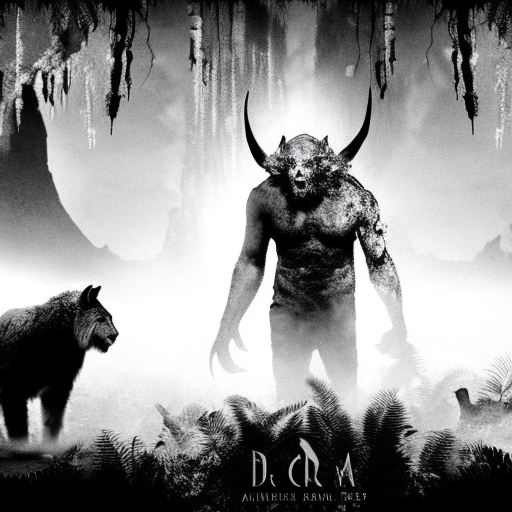The Island of Dr. Moreau: A Tale of Science and Morality
In H.G. Wells’ novel, “The Island of Dr. Moreau,” a shipwrecked man named Edward Prendick finds himself stranded on an isolated island where the enigmatic Dr. Moreau conducts his controversial experiments. As Prendick delves deeper into the mysteries of the island, he uncovers the dark secrets of Moreau’s creations and grapples with profound questions about the boundaries of science and the ethics of playing god.
Unveiling the Island’s Horrors
Upon arriving on the island, Prendick is initially relieved to find shelter with Dr. Moreau and his assistant, Montgomery. However, he soon becomes suspicious of the strange happenings and peculiar creatures that inhabit the island. As he explores further, Prendick discovers that Dr. Moreau has been conducting gruesome experiments, transforming animals into human-like beings through surgical procedures. These “Beast Folk” are caught between their animal instincts and their emerging human consciousness, leading to a constant struggle for control.
The Battle Between Science and Morality
Wells uses the character of Dr. Moreau to explore the ethical implications of scientific advancements. Moreau’s relentless pursuit of knowledge and power drives him to perform cruel experiments, blurring the line between human and animal. His actions raise profound questions about the responsibility scientists have towards their creations and the potential consequences of tampering with nature. The novel serves as a cautionary tale, warning against the dangers of unchecked scientific progress and the importance of considering the moral implications of our actions.
The Struggle for Identity and Freedom
As Prendick witnesses the suffering of the Beast Folk, he becomes increasingly sympathetic towards their plight. He recognizes their struggle to reconcile their animal instincts with their newfound humanity, and he questions the morality of their existence. The novel explores themes of identity and freedom, as the Beast Folk yearn for autonomy and struggle against the constraints imposed upon them by Dr. Moreau. Their desire for liberation mirrors the broader human quest for self-determination and the right to live according to one’s own nature.
- Key Takeaways:
- Science and morality are intertwined, and the pursuit of knowledge must be tempered with ethical considerations.
- The novel serves as a cautionary tale, warning against the dangers of unchecked scientific progress and the potential consequences of playing god.
- Identity and freedom are fundamental human desires, and the denial of these rights leads to suffering and rebellion.
“I have seen the devilish look of them; and I have heard the devilish shrieks of them… I cannot describe it. But it was the same look that had appalled me on the human beings.” – H.G. Wells
In “The Island of Dr. Moreau,” H.G. Wells masterfully weaves together themes of science, morality, identity, and freedom. Through the character of Dr. Moreau and his grotesque experiments, Wells challenges readers to consider the ethical implications of scientific progress and the boundaries of human nature. The novel serves as a stark reminder that the pursuit of knowledge must always be accompanied by a deep sense of responsibility and compassion.












